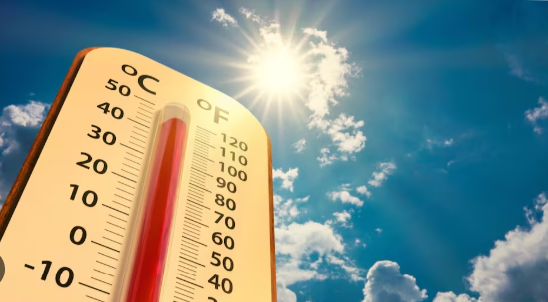The world is currently experiencing an unusual increase in temperatures due to climate change. Heat waves have become a daily occurrence in South Asian countries, including Bangladesh, during the summer. Excessive heat is not only uncomfortable, but it can have serious effects on our bodies—especially for children, the elderly, pregnant women, and those with chronic diseases.
🌡️ How does excessive heat affect our body?
In extreme heat, the body temperature rises and the body naturally tries to cool itself by sweating. But if the temperature gets too high and the body’s cooling system doesn’t work, various physical problems can occur, such as:
- Heat Exhaustion
Weakness, dizziness, excessive sweating, cold and clammy skin, etc.
- Heat Stroke
This is the most dangerous. Heat stroke can occur when the body temperature reaches 104°F or higher. In this condition, people can become unconscious, dizzy, and even die.
🛡️ What to do in extreme heat — safety tips
🏠 Indoors:
- Do not go out from 11 am to 4 pm.
- Keep the curtains of the house closed and use sunshades on the windows.
- Use fans, coolers or AC. Wash your face and hands frequently with cold water if necessary.
- Be prepared for power outages—solar fans, power banks, etc. are useful.
🌳 When going out:
- Wear light-colored cotton clothes.
- Use an umbrella, hat or sunglasses.
- Drink plenty of water and fluids—lemon juice, coconut water, ORS, etc.
- Use sunscreen before going out in the sun.
👶 For children and the elderly:
- Do not let children play in the sun for too long.
- Keep the elderly in a cool environment and make them drink regularly.
- Ensure that pregnant women rest and seek medical advice.
📢 Updated information: How to know about heatwave warnings?
- Meteorological Department website and app: You can see daily updates.
- SMS/Push Notification Apps: Temperature alerts are available on some smartphone apps.
- TV, radio, news portals: Regularly broadcast heatwave updates.
- Follow government pages on social media.
❌ What not to do:
- Avoid caffeine, alcohol, or very hot foods.
- Avoid heavy exercise in the afternoon.
- Do not leave your child in the car if you park outside.
🌱 Thinking for the future: What can we do?
Everyone needs to be aware of climate change. By planting trees, avoiding plastic, using eco-friendly equipment, etc., we can move towards a sustainable future.
Excessive heat is no longer just a seasonal hazard—it has become a health risk. We should implement heatwave prevention measures in our daily lives and spread awareness. A little preparation can save your life or the life of a loved one.
